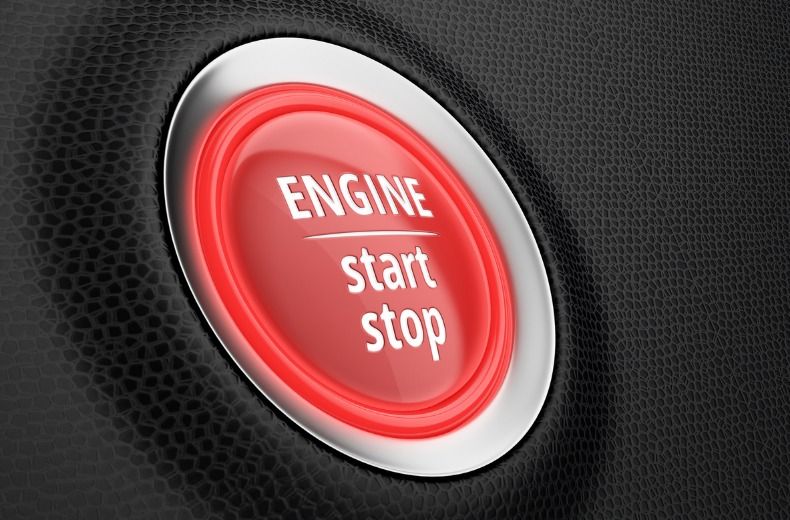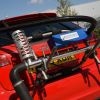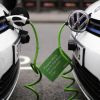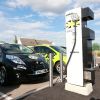Does it use more fuel? Does it cause more pollution? We decided to unearth the facts and find conclusive answers.
We're also looking at the harmful activity that partly inspired start-stop: engine idling.
What is stop-start?
A start-stop or stop-start system automatically switches off and restarts the internal combustion engine of your car.
The idea is to reduce the amount of time your engine spends idling. Hopefully it will lead to cleaner roadside air, especially outside schools.
Stop-start should also see a reduction in your fuel consumption and vehicle emissions, and it’s particularly helpful for vehicles that spend a lot of time stationary in heavy traffic.
Why is engine idling so harmful?
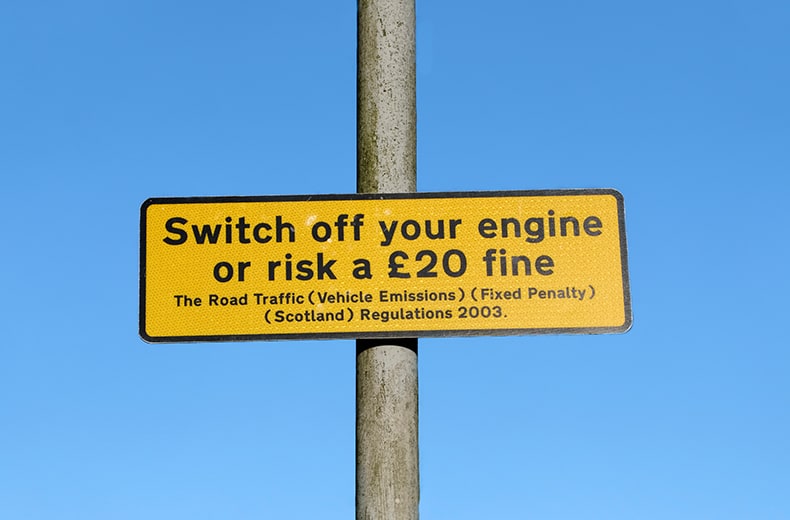
Idling means leaving a vehicle's engine running while it is stationary.
While this is often because of everyday traffic, there are some instances – such as waiting for children outside schools and sitting in total gridlock – when idling is not necessary and should be avoided.
Idling increases the amount of exhaust fumes in the air – fumes that contain harmful gasses linked to asthma and other lung diseases.
The Royal College of Physicians estimate 40,000 deaths a year in the UK are linked to air pollution1, with engine idling as a contributing factor.
Find out more about engine idling and what’s being done to tackle its harmful affects.
How does it work?
Your car can detect when it has stopped moving. Once your brake pedal is depressed, or on manual cars, your clutch is depressed and the car is out of gear, the engine control unit (ECU) cuts the fuelling and ignition to turn off the engine.
When you go to move off again, your engine is triggered to restart in any one of three ways: releasing the brake pedal, engaging the clutch or pressing on the accelerator. You can then continue with your journey without pressing dashboard buttons or turning a key.
The automatic system can be turned off – usually through a button showing an ‘A’.

RAC sale – up to 33% off*
• Roadside cover from £5.29 a month†
• We get to most breakdowns in 60 mins or less
• Our patrols fix 4/5 breakdowns on the spot

Myth #1: Stop-start engines use more fuel
Research from the American Automobile Association found that stop-start technology resulted in a 5% to 7% improvement in fuel economy2.
This saving may seem small but would certainly add up over the lifecycle of your car. In any case, the data shows that they certainly don’t use more fuel.
Myth #2: Stop-start systems damage your engine
The argument that stop-start technology is damaging mostly comes from the fear of a cold engine – your engine must heat up lubricants when it starts. However, the technology doesn’t come into use until your engine has warmed to an operational temperature.
If you’re stuck in traffic for a minute and your engine switches off, the lubricants will not cool down to damaging levels.
If you find yourself stationary for a longer period of time, the system is designed to start the engine automatically before lubricant temperatures drop too dramatically.
Another feature that protects your engine, prevents oil from returning to the oil pan. As a result, engines restart with a significant amount of fluid in the engine chamber.
While most engine parts such as your starter motor, ring gear, cambelt, and flywheel have to work more frequently than a vehicle without stop-start, manufacturers ensure longevity and ability to operate more frequently through higher manufacturing specs.
Turbos aren’t affected and build-up of soot (such as around the exhaust gas recirculation (EGR) valve) is minimised through precise engine management control features.
Further advances, such as dry lubricants on engine bearings and improvements to the durability of engine bearings, mean today’s cars are designed to withstand these frequent engine restarts.
Myth#3: Stop-start systems wear out your battery
Many stop-start systems are found on newer cars that have modern, robust batteries with a high capacity. In some cars, a separate battery is used to restart the engine as well
Cleverest of all, your car’s computer checks charge levels in your battery before attempting to shut it down. If it decides there isn’t enough charge to restart the engine, it’s left running3.
Myth#4: Stop-start engines cause more pollution

Regardless of how somebody drives there will always be moments when their car is stationary. As a result, a journey using a stop-start engine will give off fewer emissions than the same journey without one.
A study from the Polytechnic University of Madrid3 measured the CO2 emissions of two four-wheel drive vehicles. A reduction of more than 20% was recorded for the car equipped with the stop-start system.
Researchers concluded that despite variability in driving style, grade and type of streets, traffic congestion and engine operating temperature: “the car equipped with the stop/start system has intrinsically a lower CO2 emission factor.”
Are stop-start engines better for the environment overall?
There’s no doubt that stop-start technology reduces CO2 emissions. The real question is whether the pollution caused by the manufacture of extra parts is offset by the reduction in emissions over the lifecycle of a vehicle.
Similarly, how much waste is created at the end of a stop-start vehicle’s life?
Unfortunately, there doesn’t appear to be any studies that address these questions, so for the moment they remain unanswered. This is one potential myth which will have to go un-busted for now.
Hopefully the popularity of start-stop engines will make idling less of an issue in future, but what’s your take on engine idling now? Do you think fines for engine idling should be enforced more widely?
Let us know your thoughts in the comments below.
Learner driver insurance - from 2 hours to 5 months
3 https://newsroom.aaa.com/2014/07/aaas-tests-reveal-real-world-benefits-automatic-stop-start-technology/
4 https://www.sciencedirect.com/science/article/pii/S1361920910001471
Get 30 driving tips that will save you money
Running a car isn’t cheap, but there are some easy things you can do to keep your costs down. Get these tips and more useful driving articles sent straight to your inbox now.



